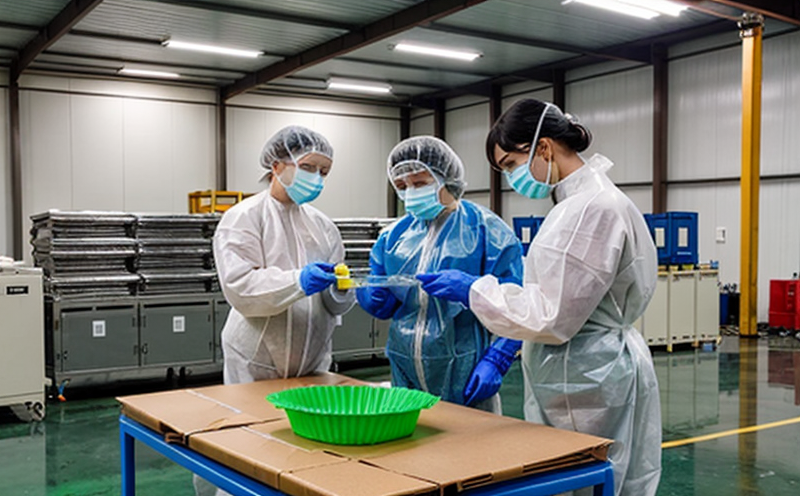ISO 11607 Packaging Integrity Testing for Medical Plastics
The International Organization for Standardization (ISO) specifies a series of standards to ensure that medical devices and their packaging meet stringent quality and safety requirements. Among these, ISO 11607 focuses specifically on the integrity testing of plastic packaging used in the medical field.
Medical plastics are critical components in modern healthcare, from disposable syringes to advanced surgical instruments. Ensuring that these materials maintain their structural integrity during transport and storage is paramount for patient safety and compliance with regulatory standards. This test assesses whether a plastic film or sheet used as packaging can withstand the stresses imposed by its intended use.
During ISO 11607 testing, samples are subjected to mechanical stress using a tensile tester. The aim is to determine if there will be any failure in the seal or structure of the packaging under conditions that mimic real-world scenarios such as handling, storage, and transport. If a breach occurs, it could lead to contamination risks, compromised sterility, or other adverse effects.
The test is essential for quality assurance teams who need to verify that their plastic films meet not only internal specifications but also external regulatory requirements like ISO 11607:2006. By conducting this test early in the product development cycle, manufacturers can identify potential issues before they reach production stages.
Understanding the importance of this test requires looking at its broader implications within the healthcare industry. Every year, millions of medical devices are produced and distributed worldwide. Ensuring that their packaging remains intact throughout distribution helps maintain product integrity and prevents costly recalls or lawsuits due to faulty containers leading to compromised products.
In summary, ISO 11607 packaging integrity testing plays a crucial role in safeguarding patient health by preventing potential contaminants from entering sterile environments like operating rooms. It also supports companies in meeting regulatory requirements set forth by organizations such as the FDA (United States) or similar bodies abroad.
Why It Matters
- Patient Safety: Ensures that medical devices remain sterile and uncontaminated during transport and storage.
- Regulatory Compliance: Adherence to ISO standards helps companies avoid non-compliance issues with local or international regulations.
- Risk Management: Identifies potential weaknesses in packaging design early, reducing the risk of product failures post-launch.
Applied Standards
The primary standard applied here is ISO 11607:2006, which provides guidelines for testing the integrity of plastic packaging used in medical applications. This includes films, sheets, and other similar materials that are intended to protect medical devices from contamination or damage.
ISO 11607 specifies several types of tests depending on the nature of the package and its contents. These include tensile testing for seal strength, puncture resistance checks, and burst testing which evaluates how well the packaging can withstand pressure changes without leaking.
The standard also covers environmental factors such as temperature variations and humidity levels that might affect the performance of the packaging over time. By simulating these conditions during testing, laboratories ensure that they are accurately assessing the real-world capabilities of medical plastic packaging.
Why Choose This Test
- Guaranteed Quality: Rigorous adherence to ISO standards ensures consistent, high-quality results.
- Industry Recognition: Results obtained from certified labs like ours are widely accepted across the medical device industry.
- Compliance Assurance: Demonstrates commitment to regulatory compliance and patient safety.
- Cost Efficiency: Early identification of issues through thorough testing can save time and money by avoiding costly post-launch modifications.





